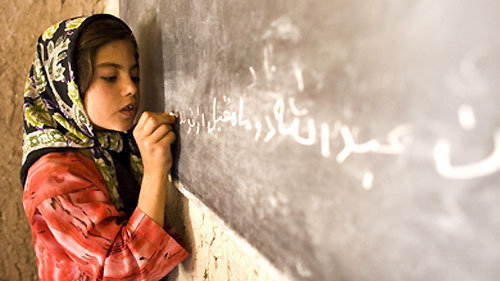A delegation of Afghan representatives led by the government will meet with Taliban peace negotiators for first time in talks that will be held in few weeks. The two sides will discuss a power sharing deal including country’s future political system.
On Monday, August 10, President Ashraf Ghani signed a decree to release the remaining 400 Taliban prisoners, making the path for start of the intra-Afghan negotiations—which is scheduled to be held on August 16.
Concerns over Afghanistan’s political future remain high and serious. The Taliban see themselves as a militant group that have defeated the strongest military power of the world, the United States of America.
Under pressure by Washington, the Taliban leaders will show flexibility to negotiate a peace settlement with old foe but their peace policy is mired in a muddy swamp of ambiguity. The question whether they can agree to work under a pluralistic political system—with women working in high level government posts—remains unclear. Most of us including the government do not know if they can reintegrate into society under a constitutional government.
We cannot achieve our rights unless we do not show courage and commitment to fight for them.
The Taliban have kept an ambiguous political agenda. Though the group’s so-called moderate leaders have consented to women rights to education, daily reality on the ground shows the opposite. A large number of girls’ schools in southern provinces of Afghanistan, where the Taliban militants control a swath of territory, remained shut over last 19 years. A UN report shows that in areas under Taliban control, most Afghan girls are not allowed to attend school.
For many Afghans, in particular women, the prospect that the Taliban would consent to women’s rights to education and work, seems like an empty promise. It might be broken once they return to power.
The notion that the Taliban have changed seems naïve. The group’s leadership, though acts flexible to acknowledge women’s rights to education before cameras, still appears uncomfortable with women go outside home to get education and work. For Taliban fighters, commanders and leaders, female presence in society is a western value brought by Americans to corrupt the Afghan society.
Protection of women’s rights to education and work is a serious cause of concern for many people in Afghanistan.
Surely, the Taliban leaders would not oppose basic women’s rights to education at negotiating table albeit there is little assurance to take their words guaranteed. By raising our voices, we, at this critical juncture, can bring the interest groups together, uniting them to stand uncompromisingly determined for women rights to education and work in the post-peace settlement Afghanistan.
At this point of our history, women campaign for rights, a hashtag campaign on social media, is the first step taken to raise awareness about women’s rights. More of us, in particular educated women, are needed to volunteer time and facility to amplify this voice—which is raised against ambiguity in Taliban’s policy about women rights. Those of us who are concerned about basic human rights should show seriousness and commitment in raising women demands and agendas in the coming multiple round of contentious and controversial peace talks with the Taliban.
With a deep feeling of folie de grander, the Taliban, of course, would resist against democratic system of governing and democratic rights of citizens but a strong united anti-Taliban bloc will give more self-confidence to the government-led negotiation team which is tasked to negotiate a power sharing deal with a bunch of hardliner mullahs.
For us, the path to achieve our rights is long and difficult but it is the only way for a dignified life. We cannot achieve our rights unless we do not show courage and commitment to fight for them.




